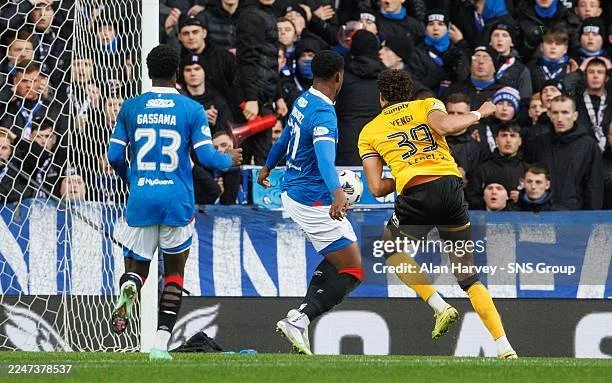The controversy surrounding VAR and refereeing in Scottish football
By Luciano Zecchino
Video Assistant Referee know as VAR was introduced to Scottish football in October 2022, making its debut at Easter Road in a top flight affair between Hibernian and St Johnstone. The argument and controversy around VAR is always floating around, as many fans are against it.
Recently in Scotland, there has been some questionable decisions that have sparked discontent among some fan bases, looking at the most recent incident at Ibrox, between Rangers and Livingston. At the time of the incident, both sides were level, as Livingston’s Tete Yengi had just netted an equaliser for Livingston.
The away side progressed forward again after their leveller, as goal scorer Tete Yengi got a shot off, which was blocked by the arm of Rangers defender Emmanuel Fernandez.
Post match, the SFA came out and apologised, as they recognized David Martindale’s Livingston should have had a penalty at Ibrox. After conceding a second half goal, the away side went on to lose the game and remain bottom of the Premiership table. This caused further anger amongst the Livingston support, as a blatant mistake had cost them a massive game.
Today, Luciano, Molly, and Taylor came together to discuss VAR in Scotland in a podcast. One of the points made to improve VAR and general refereeing, was making refereeing full-time, rather than part-time.
Refereeing being part-time, may give the impression that it has not been taken seriously enough, indicating the common mistakes and inconsistencies. Refereeing being made full-time, with a firm set of rules and standards put in place to follow, would ensure fair play in Scotland which could eliminate the allegations against officials for their inconsistencies.
As we spoke about this problem, Taylor said: “Refereeing is something you have to put your whole heart into, to ensure fair play.”
Another area discussed, was the idea of foreign referees being introduced in Scottish football, this idea was originally suggested to avoid bias within the Scottish officials, as suspicion often rises of referees edging towards teams during games.
Foreign referees open a possibility of defeating this problem, but negatives can remain in place. Examples of this could be the decision German referee Tobias Stieler in the Europa League match in Glasgow between Celtic and Braga.
Stieler disallowed a goal from Celtic’s Nigerian international Kelechi Iheanacho for a handball, this controversial decision left Celtic Park in a state of confusion, as the replays shows the ball not illegally striking the arm of Iheanacho.
Foreign referees still have their own opinions, as well as the flow of the game affecting the decisions of officials. Introducing this could help the suspicion of bias in Scotland, but nobody can say for sure that it would work.
Another example of controversial refereeing from foreign referees in the Scottish game, was Scotland’s World Cup qualifier match against Denmark. Danish defender Rasmus Kristensen received a second yellow card from Polish referee Szymon Marciniak, for a foul on John McGinn.
Prior to the sending off, Denmark were level at 1-1 with a place at the World Cup as is stood, also dominating the game. The argument flares that Kristensen’s sending off was not even a foul, the decision by Marciniak changed the flow of the game, as the Danish going down to ten men allowed Steve Clarke’s Scotland to become on top of Denmark.
Scotland went onto win the game 4-2, as Denmark dropped to the play-offs, but nobody knows how the game would have panned out if Rasmus Kristensen was not dismissed.
The points made throughout the podcast convey that fans are longing for change in Scotland with the officiating situation, along with professionals such as managers and even players.




